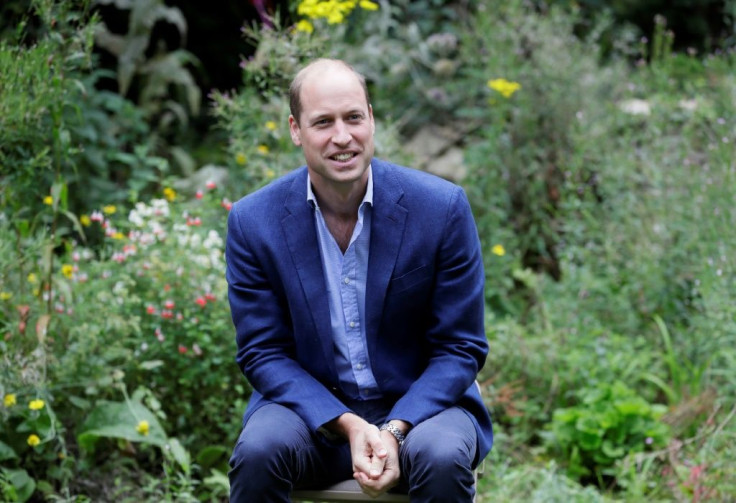Prince William Being Named World's Sexiest Bald Man Is Just A PR Piece, Consultant Claims
KEY POINTS
- The study about Prince William being the World's Sexiest Bald Man positions baldness as funny and not sexy
- The Independent report quoting the study from Google was misleading
- Consultant Dan Barker said having Prince William at the top of the list made sense because the royal is newsworthy
Prince William being named the World's Sexiest Bald Man is just a PR stunt for a firm that offers hair transplants, according to a freelance consultant.
Many were surprised when the Duke of Cambridge was named as the "Sexiest Bald Man" because, for them, someone else was more deserving, like Stanley Tucci. Others were also rooting for Dwayne "The Rock" Johnson, Jason Statham, and Shemar Moore. Dan Barker, a freelance consultant working in the areas of e-commerce, digital marketing and analytics, examined the report and concluded that it was a PR piece to promote a company offering hair transplants.
"The whole 'Prince William is world's sexiest bald man' says 'Google study' thing. I'm sure most people realise what's happened, but in case not, here is a brief explanation: This is the headline on the version of the story that's been shared the most (from the Independent)," he tweeted.
The whole "Prince William is world's sexiest bald man" says "Google study" thing.
— dan barker (@danbarker) March 27, 2021
I'm sure most people realise what's happened, but in case not, here is a brief explanation:
This is the headline on the version of the story that's been shared the most (from the Independent)... pic.twitter.com/OYC6bAd5Ho
Barker noted how the report from the Independent used a neat headline by claiming that the study was done by Google. The Independent's report was heavily shared on Twitter than the piece from The Sun and he offered three reasons for that. First, due to the headline that includes "Google study." Second, some people don't like sharing reports from The Sun. Third, The Sun didn't seem to share the report on Twitter.
Barker added that the results of the study were "pretty weird" because Google survey generally costs over a dollar and it claimed that 17.6 million times Prince William was found sexy.
"Only it's not a survey, the detail on the methodology is just this: 'The 38-year-old Duke has been described as 'sexy' a whopping 17.6million times online in blogs, reports and pages found in Google searches, researchers found,'" he added in another tweet.
Anyway, here's the detail on the study (below, see the numbers)
— dan barker (@danbarker) March 27, 2021
Pretty weird, eh? 17.6 million people said Prince William was the most 'sexy'. That's a huge study. Google surveys generally cost £0.08 per response, which would mean they'd spent over a million quid on the study... pic.twitter.com/lObONY4INE
Barker stated that there were various problems with the way the study was done because Prince William was not always bald and some entries that showed on Google could be from his pre-baldness days. Also, searching for keywords and making conclusions from the number of results returned is not how Google actually works, according to him.
"Most importantly: That's not how Google works. If you search for 'prince william sexy', not all of the results will even contain those 3 words, let alone in the context of there being a relationship between them. And if you search for the exact phrase [prince william is sexy], you get just 1 result," he added.
"So what is actually going on? It's a PR piece by a firm called Longevita, who offer... hair transplants," he concluded.
So what is actually going on?
— dan barker (@danbarker) March 27, 2021
It's a PR piece by a firm called Longevita, who offer... hair transplants.
They've put the story out to The Sun, who have published it. For some reason The Sun haven't pushed it on social, but The Independent & others (LadBible, etc) did. pic.twitter.com/5O238l2NGd
According to him, it suits Longevita that Prince William tops the list because it offers hair transplants and they want to get their name out there and get a lot of mentions related to baldness. Also, they "do *not* want to position baldness as 'sexy.'" Plus, it helps that the Duke of Cambridge is newsworthy.
"So having Prince William & baldness being made fun of, rather than people swooning over photos of Jason Statham, or Stanley Tucci, or Bruce Willis makes good sense, and lots of people assume it is Palace PR, so take a jab at it & spread it further too," he added.
5. The result was (probably deliberately) not believable, in a way that positions baldness as being kind of funny, rather than actually 'sexy'.
— dan barker (@danbarker) March 27, 2021
6. Everyone fell for that & made fun of William, & allowed for some follow up 'Stanley Tucci fans are mad' articles.
Barker finds the results not believable and in a way positions baldness as being kind of funny rather than actually sexy. It also paved the way for the netizens to make fun of Prince William and allowed "Stanley Tucci fans are mad" articles to circulate. He ended the thread by sharing the outcome — Longevita getting a bunch of mentions, some news sites making money from the ads, and various people laughing at Prince William's expense.

© Copyright IBTimes 2025. All rights reserved.






















